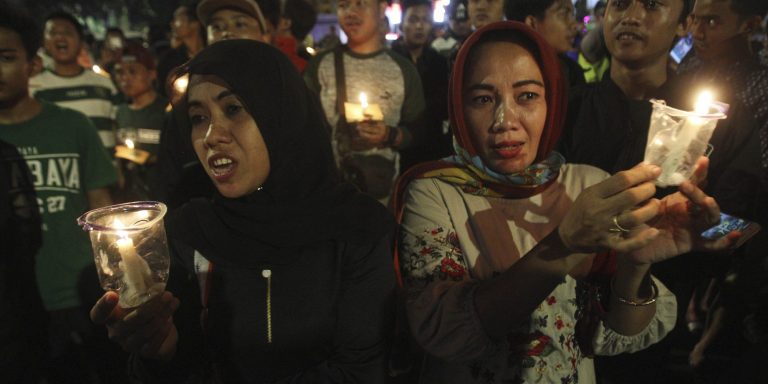INTELBRIEF
May 14, 2018
IntelBrief: The Common Thread in Different Terror Attacks

- On May 14, there was a bombing in Surabaya, Indonesia, involving a family of four.
- On May 13, a family of six conducted 3 separate suicide attacks in Surabaya, killing 8 other people and themselves.
- On May 12, a French citizen murdered one person with a knife and injured four more before being shot by police in Paris.
- It appears all these incidents were at least inspired by the ideology of the Islamic State and ‘bin Ladenism.’
.
The toxic allure of the call to terror by the so-called Islamic State was on tragic display over three days in two countries. As the terrorist group suffers persistent and crushing losses, its narrative of an ‘us versus them’ ideology continues to radiate outwards across the globe. Attacks done in the name of the Islamic State represent an enormous threat to local and national security services.
On May 12, in the Opera district of Paris, a French citizen of Chechen background murdered a man with a knife on the street and injured four more people. Police then shot and killed him. Initial reports identified the man as Khamzat Asimov, who was naturalized in 2010. He was reportedly on the ‘fiche S’ terrorism watch list, which currently has over 20,000 people. Like other European countries, France is struggling with a terrorism matrix that is overwhelmed by potential and actual threats; it is impossible for security and intelligence services in a democracy to effectively assess, prioritize, and handle a terror watch list with so many people. The French services have been dealing with an almost unsustainable counterterrorism pace since the November 2015 mass-casualty terrorist attacks in Paris. The Islamic State has claimed responsibility for this latest attack as well.
More than 11,000 kilometers away from France, there was another terrorist attack that appears to be inspired by the Islamic State. On May 13, a family of six conducted three separate attacks against Christian churches in Surabaya, Indonesia. There is some confusion as to whether the family had traveled to Syria for the Islamic State, had attempted to do so but was stopped in Turkey, or if they had stayed in Indonesia. What is clear is that the mother took her two daughters—nine and twelve years old—and walked into the Indonesian Christian Church and detonated an explosive suicide vest. The father then blew himself up in a van parked outside the Pentecost Central Church; their two sons then drove two motorcycles up to the Santa Maria Catholic Church, where they also detonated explosive suicide vests.
The latest reports are that eight people were murdered in these three attacks in the second largest city in the most populous Muslim country in the world. Terrorists have long set their sights on churches in Indonesia. In 2000, al-Qaeda affiliated terrorists targeted numerous churches in a plot known as ‘the Christmas Eve Bombings’ that left 19 people dead. On May 14, 2018, there was another attack in Surabaya, again involving a family. Five family members on two motorcycles drove up to the gate of a police headquarters and then detonated at least two explosive devices. Four of the family were killed; an eight-year-old daughter was blown off the motorcycle but survived. Ten people, including four police officers, were injured.
The unrelated attacks in two countries, as different and distant from each other as France and Indonesia, again show that while these attacks are technically unrelated they are connected by the ideology of ‘bin Ladenism,’ the terrorist ideology espoused by Usama bin Laden that has continued to spread long after his death. The narrative of groups like the Islamic State and al-Qaeda continues to find a receptive audience among a wide group, from a lone Chechen in France to a family in Indonesia. The challenge of effectively countering that narrative, without reinforcing its narrative of persecution and discrimination against Muslims, is one of the most difficult counterterrorism challenges facing governments today.
.
For tailored research and analysis, please contact: info@thesoufancenter.org
[video width="960" height="540" mp4="https://thesoufancenter.org/wp-content/uploads/2018/05/Final-Edit-1-193.mp4" poster="https://thesoufancenter.org/wp-content/uploads/2018/05/AP_18133512159487-1-e1526299932421.jpg"][/video]